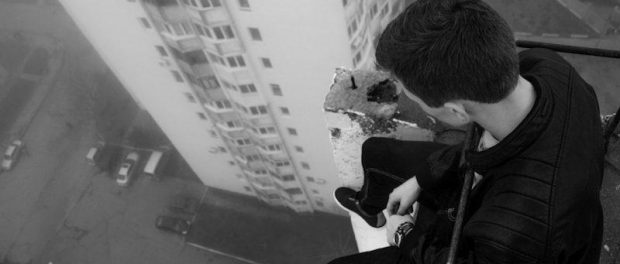Working ourselves to death: suicide in the construction industry

“The Brutal Truth is that we face a crisis, a crisis often swept under the rug rather than flag poled, a crisis that is whispered rather than shouted.”
We are facing a crisis; construction workers are ending their own lives in rates significantly higher than the already too high national average. Suicide is killing more construction workers than falls on construction sites.
In researching this article, I have often found myself in total shock at the statistics I’ve staggered across. Even for someone like me who would consider themselves well versed in our mental health crisis and all of its tributaries.
I knew there was a problem, I’ve always known there was a problem, having worked in construction most of my life the stories are all too familiar.
The sad irony of an industry absolutely obsessed with physical safety and wellbeing that is also remiss in understanding its own people’s mental struggles is not lost on me. 5 point ppe, safety audits, site rankings for numbers of slips, trips and falls as well as near misses. Yet people on these sites are walking around not thinking of potential injury, but potentially ending their lives full stop is at the very least cause for concern as to how mental health is viewed and treated within the industry.
The situation
The Brutal Truth is that we face a crisis, a crisis often swept under the rug rather than flag poled, a crisis that is whispered rather than shouted.
ONS statistics allude to the problem however they don’t paint a full picture. Suicide rates for a low skilled male in the construction industry are 3.7% above the national average.
Between 2011-2015 there were 13,232 suicides by working people. 13.2% of those were construction workers despite construction accounting for only 7% of the workforce.
2016 makes for an equally bad reading at 454 deaths by suicide in the construction industry.
Some will glance at these statistics and not fully embrace the gravity of the crisis. That’s when the human factor comes in. Let’s take a second to remember that every one of these people is beloved to someone, this could be a parent, sibling, child, provider or carer.
For every one of these deaths families and communities are devastated and that should be enough for us to start taking this issue seriously.
The causes
Where to begin on this? The often referenced “tough guy image” that those in construction must portray. During my time in construction appearing tough certainly helped. Nobody ever spoke of mental health, depression or anxiety for fear of ridicule and exclusion.
Then we come on to money, you can make fantastic money in construction (but most don’t) tie this in with the uncertainty and temporary nature of most construction engagements and you have a whole minefield of issues. We forget sometimes the reach that the octopus that is money holds over our whole lives.
The volatile nature of the construction industry no doubt plays its part also, people not knowing from one month to the next whether the job may end or the remit changed. Sometimes people are forced to travel long distances from home to various different sites, and they can’t understand how they are out of the house for 13-14 hours a day for 8 hours pay.
Construction firms are notorious for late and even non-payment and the problems this can lead to for families living from week to week are endless.
I worked with a lad from Glasgow in 2014 who’s situation highlighted this whole scenario, he was paid £480 a week after tax, of this he had to pay rent, maintenance, legal fees for custody battle, food, transport, bills and he was left with £22 per week after working his hands to the bone 45 hours a week. Not knowing if next week would be his last on the contract. That would be enough for most to start on a downward spiral.
All of this whilst battling all of our lives eventualities as we all do every day and it becomes hardly surprising that such high numbers are struggling.
Solutions?
Never would I be so arrogant to proclaim I have all the answers but I do have some suggestions.
- A trained mental health first aider on every site
- Money management courses offered to all of those in the industry, especially in lower-skilled/paid jobs.
- Culture checklists for employers i.e. a list of simple points to ensure people can openly discuss wellbeing and stresses of the job, without fear of reprisals 1 in 5 currently don’t feel they can.
- Lastly just look after each other, take a minute to check on colleagues and employees, make them aware that you are available to talk. This one may be the easiest yet most important step of all.
In the construction industry, there are endless schemes and audits to ensure people’s physical safety is taken care of, a series of tools to ensure we are taking care of our employee’s mental health and well-being would not be so hard to implement.
It has been hard to cast such a pessimistic eye over an industry that I love so much. An industry that has kept a roof over my head for 15 years.
The construction industry is not all bad it is full of fantastic characters and wonderful opportunities but put simply it needs to do more. Every brickie, groundworker, spark, plasterer, etc are special to somebody.
Remember that next time you’re on site.
By Nik McEwan
